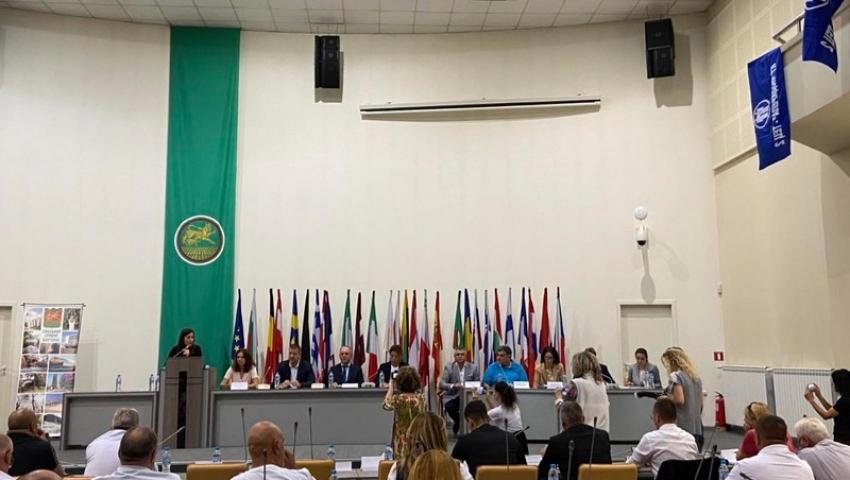Territorial plans aim to address the effects of the energy transformation
No commitments are made with them for the operation of the mines or plants

Source: Press center of the Ministry of Energy
"With the Territorial Plans no commitments are made either for the operation of "Mini Maritsa-East" or the power plants", said the Deputy Minister of Energy Krasimir Nenov at the third discussion on the topic "Future for the energy complex "Maritsa East" - prospects and challenges ", held in Stara Zagora.
On behalf of the Ministry of Energy, Deputy Minister Iva Petrova took part, and among the participants were Deputy Minister of Regional Development and Public Works Angelina Boneva, Deputy Minister of Economy Ivaylo Shotev and Deputy Minister of Labor and Social Policy Desislava Stoyanova, reported from the press center of the Ministry of Energy.
Deputy Minister Nenov also commented that a lack of information was found regarding those affected by the plans. He emphasized that the Territorial Plans aim to address the effects of the energy transition and the needs of those affected.
The Deputy Minister of Regional Development and Public Works Angelina Boneva commented that the European funds are not an end in themselves, but an element of the solution to a complex task.
The Ministry of Labor and Social Policy committed to be a partner of the municipality and the authorities and to provide support to everyone affected by the energy transition.
A protest on the ground demanded that the TPSP drafts (territorial plans) contain more specifics, both for energy and local policies. Representatives of miners and trade unions also asked for more specifics regarding the planned investments and the creation of new jobs. They also raised the question of who will carry out the reclamation of the grounds, insisting that it should not be carried out by private companies, which would take away part of the activity of "Mini Maritsa-East". Representatives of KNSB insisted that opportunities for capturing carbon emissions, such as technologies applied in China, should also be included in the Territorial Plans.
Deputy Minister Nenov emphasized that the volumes of electricity production from the complex mentioned in the Territorial Plans are not a commitment, but an assessment based on objective data.
He added that the current trend is to reduce coal production, which is related to the high price of carbon quotas. And although the assumed volumes and amounts of extraction are not committed, the market situation must be monitored and the activity adapted. The Deputy Minister added that he welcomes the sharing of experience on the application of new technologies to help the smooth implementation of the energy transition.
Krasimir Nenov also said that the opportunity to introduce a capacity mechanism was missed in 2019 and urged us not to repeat this mistake by not submitting the projects for Territorial Plans.
Deputy Minister Iva Petrova emphasized the need for participation at the local level in the plan management mechanism and added that an invitation was sent to large investors in order to outline the possible investments.
The Deputy Minister of Economy Ivaylo Shotev commented that his ministry has made a commitment to make plans for the industrial zones by the end of the year and emphasized the great potential of Stara Zagora, including because of its strategic location.
Regarding the need for an energy strategy for the country, Deputy Minister Petrova stated that the Integrated Plan in the field of energy and climate is the strategic document that should unite the sectoral strategies. Accordingly, the energy strategy must be aligned with this plan, which is currently being updated.
The representatives of the executive power pointed out that the role of the state is to create an attractive environment, a suitable investment climate, in order to create quality jobs.
